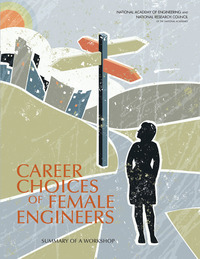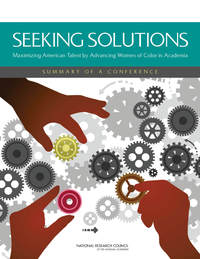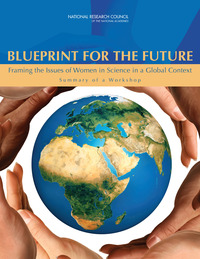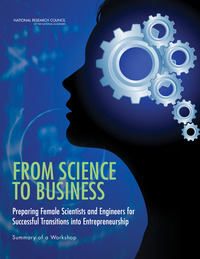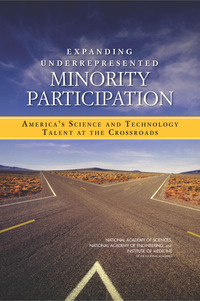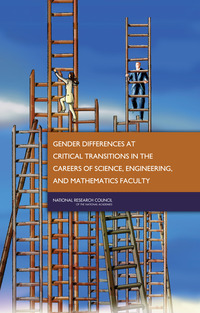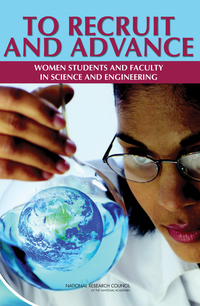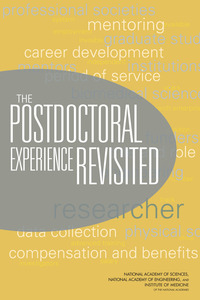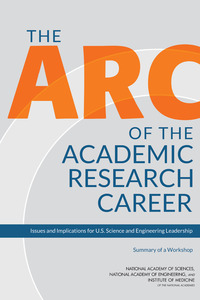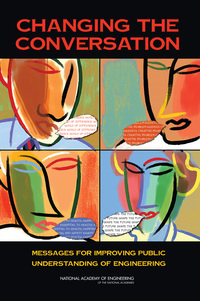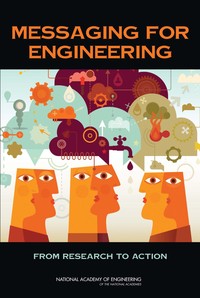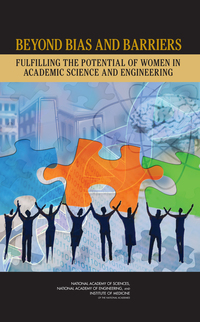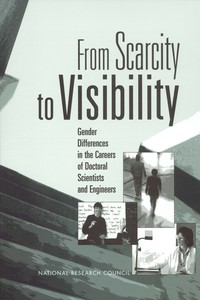
Unquestionably, women’s participation in academic science, technology, engineering, and mathematics (STEM) has increased over the past few decades. In order for the United States to maintain the global leadership and competitiveness in science and technology that are critical to achieving national goals, we must continue to encourage the growth of a diverse STEM workforce. Reports from the National Research Council and the National Academy of Engineering explore the unique challenges for women as they pursue careers in STEM fields. All are free to download.
Despite decades of government, university, and employer efforts to close the gender gap in engineering, women make up only 11 percent of practicing engineers in the United States. What factors influence women graduates’ decisions to enter the …
Seeking Solutions: Maximizing American Talent by Advancing Women of Color in Academia is the summary of a 2013 conference convened by the Committee on Women in Science, Engineering and Medicine of the National Research Council to discuss …
The scientific work of women is often viewed through a national or regional lens, but given the growing worldwide connectivity of most, if not all, scientific disciplines, there needs to be recognition of how different social, political, and …
Scientists, engineers, and medical professionals play a vital role in building the 21st- century science and technology enterprises that will create solutions and jobs critical to solving the large, complex, and interdisciplinary problems faced …
In order for the United States to maintain the global leadership and competitiveness in science and technology that are critical to achieving national goals, we must invest in research, encourage innovation, and grow a strong and talented science …
Gender Differences at Critical Transitions in the Careers of Science, Engineering, and Mathematics Faculty presents new and surprising findings about career differences between female and male full-time, tenure-track, and tenured faculty …
Although more women than men participate in higher education in the United States, the same is not true when it comes to pursuing careers in science and engineering. To Recruit and Advance: Women Students and Faculty in Science and Engineering …
The Postdoctoral Experience Revisited builds on the 2000 report Enhancing the Postdoctoral Experience for Scientists and Engineers. That ground-breaking report assessed the postdoctoral experience and provided principles, action …
America’s research universities have undergone striking change in recent decades, as have many aspects of the society that surrounds them. This change has important implications for the heart of every university: the faculty. To sustain their …
Can the United States continue to lead the world in innovation? The answer may hinge in part on how well the public understands engineering, a key component of the ‘innovation engine’. A related concern is how to encourage young …
For those in the broad engineering community–those who employ, work with, and/or educate engineers, and engineers themselves–there is no need to explain the importance and value of engineering. They understand that engineers help make the world …
The United States economy relies on the productivity, entrepreneurship, and creativity of its people. To maintain its scientific and engineering leadership amid increasing economic and educational globalization, the United States must aggressively …
Although women have made important inroads in science and engineering since the early 1970s, their progress in these fields has stalled over the past several years. This study looks at women in science and engineering careers in the 1970s and 1980s, …
